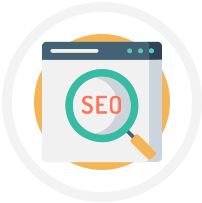Search engine optimization has become businesses’ topmost priority as it is one of the strategic ways to get the audience’s attention at the digital forefront. Not including SEO in your digital marketing strategy means that you are missing out on a lot many opportunities it could have generated if it had been done in the right way.
One of the questions that businesses often have is, “how much does SEO cost?” However, there is no one-size-fits-all answer, as the investment in SEO varies from objective to objectives. You could be paying $500 to $10,000/month, depending on your business goals, competition, and who you hire to manage the work, like an SEO agency or a freelancer.
Some companies spend more on content and technical fixes. Others prioritize local rankings or ecommerce SEO. Regardless of the route, SEO is a long-term investment. Let us help you understand what goes into SEO pricing and how to choose a solution that delivers value and not just traffic.
Clients Retention Rate
Excellence Rating
Businesses Transformed
“I was impressed by their ability to take on a project and complete it quickly and efficiently.”
 Paul Wehrle, President
Paul Wehrle, President Rated 4.9/5 stars on GoodFirms
Rated 4.9/5 stars on GoodFirms Rated 5.0/5 stars on Clutch
Rated 5.0/5 stars on ClutchWe’re thrilled to connect with you! Whether you’re looking to elevate your digital presence, innovate your brand, or explore new opportunities in the digital landscape, we’re here to make it happen.
Email hello@icecubedigital.com
+91 9106060593 (Sales & Support)
Every business has its own SEO needs. Some need basic keyword targeting and local listings, while others require advanced site audits, content strategy, link building, and conversion tracking. That is why SEO services pricing can vary dramatically.
At Icecube Digital, we customize SEO strategies to fit your business size, website structure, and goals. On average:
We believe in delivering high-impact SEO that matches your growth plan. Our SEO pricing packages are designed around outcomes and not only deliverables.
About 68% of online experiences begin with a search engine, and that is why smart businesses do not leave SEO to chance. However, before setting your SEO marketing cost, you need to understand the major variables involved:
Industries like legal, real estate, finance, and IT are highly competitive. Ranking for keywords in these verticals takes more time, deeper content, and stronger backlinks. Niche businesses with lower competition might require less aggressive strategies and that usually brings down costs. If your competitors have been investing in SEO for years, you will likely need a smarter plan and more budget to catch up.

The number of pages on your site, target regions, and technical complexity all affect the pricing. A 10-page local site is not the same as a 500-product eCommerce platform or a multilingual service website. More pages and more complexity mean more hours and a higher SEO marketing cost. Sites with layered navigation, custom product filters, or multiple subdomains often need deeper technical SEO and that adds to the cost.
Hiring a freelancer might sound cost-effective, but most businesses need the bandwidth and strategy depth only an SEO agency can provide. Agencies bring in specialists for technical, on-page, off-page, and content work. That coordination drives better outcomes and saves time. The more experienced the team is with your niche, the faster they can avoid trial-and-error and focus on what actually works.
Location matters as SEO agencies in North America and Western Europe typically charge more due to higher overheads. Agencies in India or Southeast Asia may offer more competitive rates. The trick is to balance cost with quality and communication. Timezone overlap, communication gaps, and language clarity all affect how smoothly the workflows go month to month.
If your site is slow, bloated with outdated plugins, or filled with broken links, your SEO team will need to clean up that mess before they can even start improving rankings. Technical debt like this adds hours to audits, implementation, and testing. Websites built without SEO in mind require more upfront fixes and that drives up initial costs even before you get to content or backlinks.
A lot of businesses underestimate how much content they actually need. It is not just about one blog post a month. You may need product descriptions, pillar pages, landing pages, and fresh blog articles to target different keywords. If your industry is complex or your audience needs more education, then content becomes a heavier part of your SEO strategy, and that adds to the total cost.
Backlinks are still a huge part of SEO but not all backlinks are equal. Getting one quality link from a respected publication takes more time than placing five low-quality directory links. If you want your site to build domain authority the right way, you will need a smart link-building plan and a budget to support outreach, relationship-building, and content that earns those links naturally.
Basic SEO providers might send you a keyword rank tracker and call it a report. However, if you want proper analytics, conversion tracking, user behavior insights, and SEO dashboards that tie results to revenue, you are asking for a more advanced setup. Agencies that offer custom reports and data integration usually charge more but give you better clarity on what you are actually paying for.
Our team brings together analysts, writers, link builders, and technical pros under one roof. You get clear reporting, honest timelines, and strategies built for your revenue and not simply your rankings. We’ve helped clients in tech, retail, education, and eCommerce scale up with clean, Google-compliant SEO. And we will never lock you into fluff-filled long-term contracts. You pay for value. That’s it.
When you partner with Icecube Digital for SEO, here is what you get:
Your business goals should decide the pricing model. If you are serious about long-term growth, a monthly retainer is ideal. It allows your agency to plan, execute, track, and improve continuously.
If you are launching a site or need an audit, project-based pricing might be more practical. Just make sure it includes everything you need to move forward; strategy without execution usually goes nowhere. Hourly SEO is great if you already have a team and need expert help on a few items.
When it comes to SEO, there are several ways agencies charge for their services. Each model comes with its benefits and trade-offs, and what works for one business might not be the best fit for another.
Ideal for short-term consulting, technical audits, or isolated tasks. Rates typically range from $50 to $200 per hour, depending on the expertise of the consultant or agency. You pay only for the time spent, which works well if your needs are limited, but without a defined scope, the budget can quickly get out of control.
This is the most common model for businesses that need ongoing SEO work. Monthly retainers generally start around $750 and can go beyond $5000, depending on the complexity of your campaign. This model allows for continuous work, consistent monitoring, and proactive optimization, all of which are essential for long-term SEO success.
Best suited for one-time requirements such as site migration, full technical audit, or initial SEO setup. Pricing often ranges from $1000 to $30,000 based on the depth and scale of the project. This is a good option if your team can handle ongoing SEO work internally but needs outside help with specific tasks.
In this model, agencies are paid based on actual outcomes like traffic improvements or keyword rankings. On the surface, it seems attractive, but it is not always transparent. Because SEO results can depend on external factors, many reputable agencies steer clear of this pricing method to avoid unrealistic expectations or shortcuts.
Some agencies assess pricing based on the value they expect to generate for your business. So, if your SEO investment could bring in $50,000 in added revenue, they may price their work accordingly. This model demands a strong partnership and a deep understanding of your business model, but when done right, it aligns both sides toward measurable outcomes.

A growing number of agencies offer hybrid models, combining a small monthly retainer with project-based billing for larger milestones. For example, ongoing optimization might fall under retainer, while content creation or link building gets billed separately. This gives more control over the budget while still allowing for flexibility in strategy. It is especially useful for businesses with shifting needs or seasonal SEO goals.
Planning your SEO budget is not something you can rush through or base on a guess. You need to know what your site needs, where your audience is searching, and how fast you want to grow. Unlike ad spend, where results can be immediate, SEO builds over time, so your budget has to account for that long-term runway.
If you are targeting keywords in crowded markets like finance or SaaS, then getting onto page one will take longer and cost more. You need stronger content and better links to outrank others already holding those spots. But if your niche is more local or specialized, then you can get traction faster with less spending.
A site that is already fast, mobile-friendly, and technically clean will need less upfront investment than one that has broken pages, no schema, and poor structure, if your SEO team has to fix the basics before getting into a real growth strategy, which affects your cost.
Are you targeting a single city, a region, or the whole country? Local SEO often costs less than national SEO but comes with its challenges, like map pack optimization, local citations, and reviews. Going national usually means more content and more links, and your budget needs to reflect that scope.
If you have in-house writers or developers, your SEO partner might only need to provide strategy, audits, and monthly reports. That can bring down the cost. But if you need everything handled from scratch, technical work, content writing, and off-page work then expect a full-service package with a higher price tag.
There is no universal SEO pricing model that works for every business. What gives you the best value depends on where your customers are searching and how complex your site is. Value also comes from how well the platform supports growth without needing custom work every time. You want clean URLs, fast page loads, schema support, and an easy way to optimize content.
The best SEO piercing models are not always the fanciest; they are the ones that let you fix issues quickly and scale your strategy without headaches. So, before choosing where to invest, think about how your team works, what kind of traffic you want, and how long you plan to stay on that platform. Because switching later usually costs more.
| Pricing Model | Cost Range | Best For | Pros | Cons |
|---|---|---|---|---|
| Hourly | $50 to $200/hr | One-time fixes and consulting | Pay for specific tasks only | The budget can grow fast if the scope is unclear |
| Monthly Retainer | $750 to $10,000/mo | Ongoing SEO management | Consistent execution and long-term strategy | Requires a regular monthly commitment |
| Project-Based | $1000 to $30,000 | Website launches, audits, or migrations | Defined scope with fixed pricing | Ends after delivery with no further support |
| Performance-Based | Variable | Traffic or ranking-based results | Payment linked to actual outcomes | Can lack clarity and lead to risky shortcuts |
| Value-Based | Based on the projected value | ROI-focused businesses | Aligns goals with business impact | Needs trust and deep business understanding |
| Hybrid | Mix of models | Businesses with flexible or seasonal needs | Combines stability with flexibility | May require more tracking and coordination |
You came here wondering how much SEO costs. You might have expected a flat number, but hopefully, by now, you understand it depends. It depends on how competitive your space is. It further relies on what kind of website you have. It depends on whether you need content, technical audits, backlink cleanup, or all of it together. And most of all, it depends on who you work with.
SEO is never about price, but rather it is about value it adds to your brand. They wanted to know how the strategy works, what kind of accountability is in place, and whether the agency is focused on traffic or actual conversions.
Whether you are a small startup trying to get traction or a growing brand that is already spending on paid ads and now needs long-term organic traffic, we can help. Icecube Digital has custom SEO pricing packages that do not just look good on paper but deliver the desired results.
If you are ready to stop guessing and start growing, reach out to Icecube Digital experts. We will send over a proposal that is tailored to what you actually need.
When we set out to rebuild all six of our websites into a WordPress with WooCommerce framework, we knew we would need a business partner that would be with us for the long haul. Ice Cube Digital has been there for us and continues to work with us every step of the way. From designing our sites to launching them, the process has been smooth and trouble free. Ice Cube Digital has always been available anytime we had questions, and issues are always resolved in a timely manner. We are especially happy with the SEO work they have performed, and our maintenance agreement with them that allows us to keep on top of our businesses, instead of worrying about keeping on top of monthly site and plugin upgrades. If you are looking for a complete and cost effect business partner, Ice Cube Digital is your team!

You can expect SEO to cost anywhere between fifty dollars per hour and ten thousand dollars or more each month, depending on the experience of the team and the scope of your campaign.
Most businesses spend somewhere between one thousand and five thousand dollars per month for professional SEO services that cover technical, content, and off-page work.
Real SEO requires multiple skill sets, including technical audits, keyword research, content writing, link building, and analytics. It is a long-term game that takes serious time.
Start by finding agencies that offer transparent SEO pricing packages. Ask for a proposal that breaks down deliverables and timelines so you know exactly what you are paying for.
The main factors include your industry, the competitiveness of your target keywords, the size of your website, and whether you are hiring a freelancer or a full agency.
A small business should expect to spend at least seven hundred fifty to fifteen hundred dollars monthly if they want consistent SEO work that makes a difference.
There are four main pricing models. Hourly pricing works for consulting. Monthly retainers are best for long-term SEO. Project pricing fits one-off jobs. Performance-based pricing is rare and not always reliable.
Hourly rates let you pay for specific tasks, but monthly retainers give you full-service support and better momentum across multiple areas of SEO.
Yes. SEO often delivers long-term traffic that does not depend on ongoing ad spend. However, the returns take time and depend heavily on the quality of work.
Most businesses begin seeing early movement in rankings and traffic within three to six months. Larger gains usually come between six to twelve months, depending on your market.
Packages generally include a full website audit, keyword research, on-page SEO, off-page SEO, technical SEO, local SEO, content creation, link building, and regular reporting.
Look for clear communication, past results, niche experience, and reporting transparency. Avoid any agency that promises number-one rankings overnight, because SEO is a long-term strategy. It takes time to see what is working and refine the strategy to deliver the desired results.
Not all agencies offer the same level of service, expertise, flexibility, tools, or reporting, so the varies between SEO agencies vary. Some also outsource work, while others manage everything in-house, so the prices may change.
You can search on Clutch, LinkedIn, or Google Partner directories. Also, ask peers in your industry for referrals they trust.
Local SEO is usually less expensive because it targets smaller geographic areas and often fewer keywords. National SEO needs a broader strategy.
Low-cost SEO often means spammy backlinks, low-quality content, or outdated tactics. These can hurt your rankings and take months to fix.
Negotiating the contracts requires finesse and a thorough understanding of the services. Focus on scope, KPIs, and well-defined results, not just cost. Discuss and set the achievable goals with the agency, ask for clear reporting schedules, exit clauses, and performance reviews every few months.
A basic audit might cost three hundred to five hundred dollars. A full technical and competitive audit could go up to two thousand or more, depending on your site. However, some agencies provide SEO audits for free as well. So, before hiring an agency, ask whether their SEO services support a free website audit or not.
SEO tends to have higher upfront costs than paid ads, but delivers more sustainable traffic over time and does not require ongoing clicks.
Yes. As AI-generated content increases and Google refines its algorithm, expert-driven SEO will become more valuable, and demand will push prices upward.
